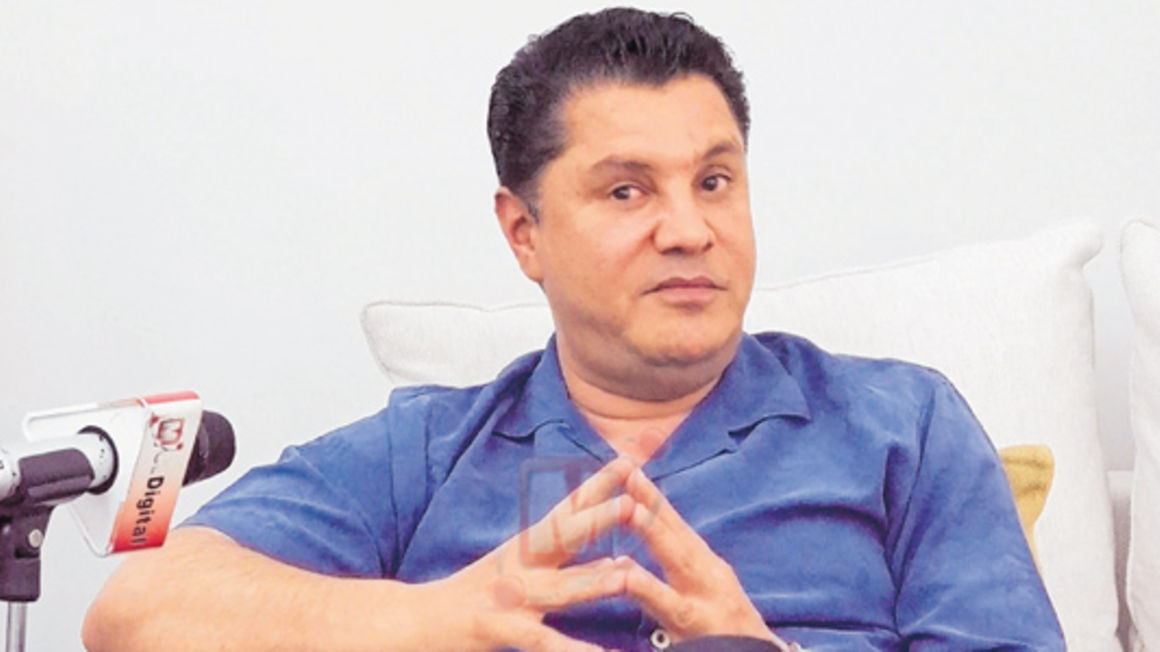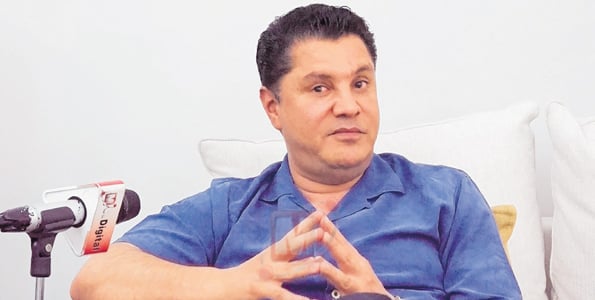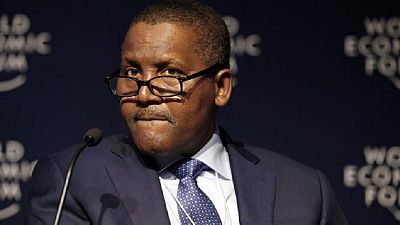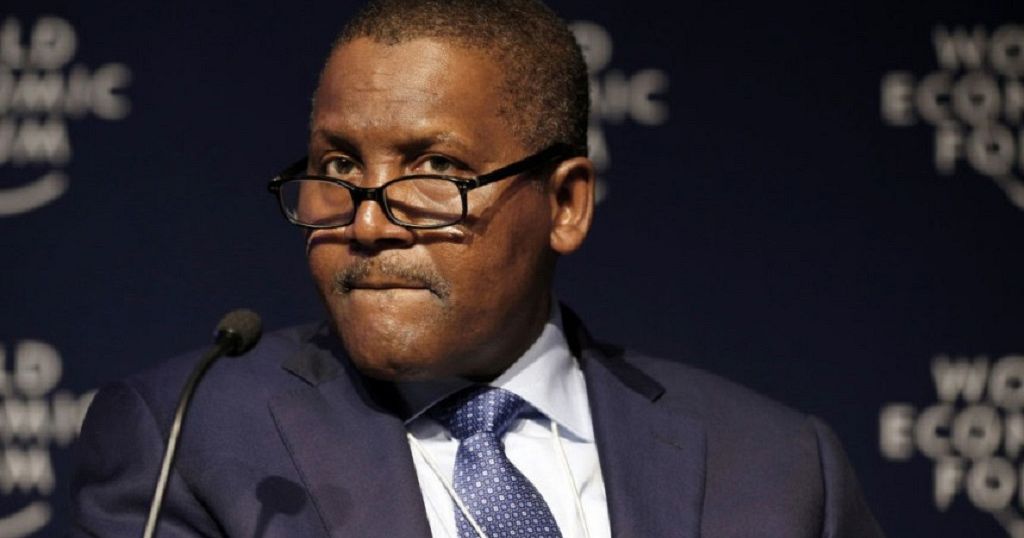Geza Ulole
JF-Expert Member
- Oct 31, 2009
- 59,186
- 79,378
Rostam Aziz speaks out on the difficulty of Tanzanians investing in Kenya
WEDNESDAY MAY 05 2021

Mr Rostam Aziz in an interview with BusinessWeek PHOTO|SYRIACUS BUGUZI
Summary
- Rostam was speaking at a high level business forum that was hosted by Presidents Samia Suluhu Hassan and Uhuru Kenyatta in Nairobi on May 5, 2021.

By The Citizen Reporter
More by this Author
Dar es Salaam. Businessman Rostam Aziz has said the relationship between Tanzania and Kenya is skewed, saying it is very easy for Kenyans to invest in Tanzania and the reverse for Tanzanians, urging the leadership to work on the imbalances
Rostam was speaking at a high level business forum that was hosted by Presidents Samia Suluhu Hassan and Uhuru Kenyatta in Nairobi on May 5, 2021.
"It is very easy for Kenyans to come to Tanzania to invest but the situation is different on the other hand and there are many examples. There are 530 Kenyan companies that have invested more than US $ 1.7 billion in Tanzania but only 30 Tanzanian companies have successfully invested in Kenya with an investment of only US $ 50 million. ”
"This relationship is not one that can build an economy between the two nations and if we fail to work on these challenges then we will not be able to achieve our goals," said Rostam.
According Rostam Aziz who was part of President Samia’s delegation on her state visit to Kenya, in 2017, he met President Uhuru who invited him to invest in Kenya but it has been a non starter since then.
"President Kenyatta asked me to invest in Kenya and asked me what I would like to invest in. I told him I saw an opportunity in gas. But it has been three years since and I am yet to get any replies on the investment which would have been worth $130 million,” said Rostam.
He added: If we do not build good investment relations between Tanzania and Kenya then the existing relationship will not last, I would like to emphasize that equality is needed for both parties so that we can grow the economy between the two countries," said Rostam.

Rostam Aziz speaks out on the difficulty of Tanzanians investing in Kenya
Businessman Rostam Aziz has said the relationship between Tanzania and Kenya is skewed, saying it is very easy for Kenyans to invest in Tanzania and the reverse for Tanzanians, urging the...
MY TAKE
Just like flour from Tanzania barred from reaching supermarkets in Kenya, a $130 mln investment in gas has gone unanswered since 2017 and he visited Uhuru Kenyatta in person. As i always say Kenyatta is hypocrite!
CC: Tony254
Here is when Rostam Aziz launched Taifa gas Tanzania with a promise of more investments of around $250 mln!
A short profile of Rostam Aziz
ROSTAM AZIZ JOINS FORBES WORLD'S BILLIONAIRES LIST

- Net Worth
- $1.1 Billion
Source Of Wealth telecom, investments, Self Made
CitizenshipTanzania
Marital Status Married
Rostam Azizi is new to the Forbes World's Billionaires list this year. The first and only billionaire in Tanzania, he owes the bulk of his fortune to his 35% stake in Vodacom Tanzania, the country's largest mobile phone company with more than 10 million subscribers. He also owns Caspian Mining, a contract mining company that provides services to giants like BHP Billiton and Barrick Gold. Caspian Mining also owns several mining concessions for gold, copper and Iron ore in Tanzania. Azizi's other assets include a stake in Dar es Salaam Port where he is a partner with Hong Kong investment holding company Hutchison Whampoa; a controlling stake in a newspaper publisher; and extensive real estate in Tanzania, Dubai, Oman and Lebanon. A fifth generation Tanzanian of Persian origin, he is a former member of Tanzania's parliament. He gives millions annually to groups focused on education, health and cultural preservation.
Source - Forbes
Mar 4, 2014,01:15pm EST
The African Billionaires 2014
Mfonobong Nsehe
Former Contributor
Billionaires
I chronicle Africa's success stories and track its richest people
This article is more than 7 years old.
This year, a record 1,645 billionaires made it to FORBES’ annual ranking of the world’s richest people.
There are 29 African billionaires this year, up from 20 just a year ago. These are the 29 Africans who are worth $1 billion or more:
Aliko Dangote, $25 billion
Nigerian, Cement, Flour, Sugar
Aliko Dangote is the richest man in Africa for the fourth year in a row. His Dangote Group is West Africa’s largest industrial conglomerate and has interests in cement production, flour milling, sugar refining and food and beverages. He is $9 billion richer than he was last year on account of the soaring value of the stock price of his publicly-listed Dangote Cement which is up 65% since last year. Dangote is aggressively expanding his Cement company across new markets in Africa, recently announcing plans to build new plants in Kenya and Niger. The company is now present in 15 African countries. Dangote also recently announced plans to construct a private oil refinery and is building a tomato paste factory in Nigeria.
Johann Rupert & Family, $7.6 billion
South African, Luxury Goods
South Africa’s richest man sits atop publicly-listed Swiss-based luxury goods outfit Compagnie Financiere Richemont, which owns brands including Cartier, Van Cleef & Arpels, Jaeger-LeCoultre and Montblanc. He also owns stakes in investment holding companies Remgro and Reinet. Other holdings include two of South Africa’s best-known vineyards, Rupert & Rothschild and L’Ormarins as well as the Franschhoek Motor Museum which houses his personal collection of over 200 antique vehicles.
Nicky Oppenheimer & Family, $6.7 billion
South African, Diamonds
PROMOTED
In July 2012, Oppenheimer sold his family’s 40% stake in his family’s diamond business, De Beers to Anglo American for $5.1 billion in an all-cash deal that marked the end of the Oppenheimer family’s multi-decade control of the diamond company. The Oppenheimer family invests through Tana Africa Capital, a $300 million private equity joint venture with Singapore state investor Temasek. Nicky also owns an estimated 1.8% stake in Anglo American.
Nassef Sawiris, $6.7 billion
Egyptian, Construction
Nassef Sawiris is the CEO of Orascom Construction Industries (OCI), Egypt’s most valuable publicly-traded company. In January last year, he announced that OCI was exchanging all global depositary receipts of the company for newly issued shares of OCI NV on the NYSE Euronext in Amsterdam. Bill Gates was part of a consortium of U.S investors who provided $2 billion to help cover payments to shareholders who prefer to tender their OCI shares for cash.
Mike Adenuga, $4.6 billion
Nigerian, Telecoms and Oil
The reclusive Nigerian billionaire is the founder of Globacom, Nigeria’s second largest mobile phone network which has about 24 million subscribers. He also owns Conoil Producing, an indigenous oil exploration company which holds the rights to some of Nigeria’s most lucrative oil fields. Notoriously private, Adenuga hardly grants Press interviews and travels around in with a retinue of bodyguards.
Isabel Dos Santos, $3.7 billion
Angolan, Investments
Africa’s richest woman owns substantial stakes in a number of blue-chip Angolan and Portuguese companies such as Angolan mobile phone company Unitel , Angolan bank Banco BIC SA, Portuguese media giant ZON Optimus and Banco BPI. Isabel is the eldest daughter of Angola’s President Jose Eduardo dos Santos and is believed to hold many of these assets in trust for her father.
Issad Rebrab, $3.2 billion
Algerian, Diversified
Issab Rebrab is Algeria’s richest man, thanks largely to his stake in Algeria's biggest family-owned conglomerate, Cevital, which has interests in sugar refining, port terminals, auto distribution, mining and agriculture. His five children all work at Cevital and the group employs over 12,000 people.
Christoffel Wiese, $3.2 billion
South African, Retail
Wiese, a South African retail mogul is the chairman and the largest shareholder of Shoprite Holdings, a chain of low-price supermarkets with a presence across multiple African countries. He also owns a large stake in Pepkor, a private company that owns seven different discount fashion brands. His other assets include Lanzerac Manor & Winery, a five-star hotel and a significant shareholding in Brait, a private equity firm.
Nathan Kirsh, $3.1 billion
Swaziland. Real Estate
Nathan Kirsh, a Swazi national is the founder of Jetro Holdings, a cash and carry wholesaler of perishable and non-perishable food products, household goods, equipment, supplies and related goods for grocery retailers. Kirsch made his first fortune in Swaziland several decades ago when he founded a corn milling business in 1958. He subsequently expanded into wholesale food distribution in apartheid South Africa and commercial property development.
Mohamed Mansour, $3.1 billion
Egyptian, Diversified
Along with his two brothers, Yasseen and Youssef (also on FORBES’ billionaires list), Mohamed runs the Mansour Group which owns the world’s largest GM dealership. The Mansour Group also owns the largest supermarket chain in Egypt, the country’s second largest real estate developer, Palm Hills, and the Philip Morris franchise in Egypt.
Othman Benjelloun, $2.8 billion
Moroccan, Banking
Othman Benjelloun is the CEO of BMCE Bank, one of the largest commercial banks in Morocco, with operations in at least 15 African countries. He is also the chairman of holding company FinanceCom which has interests in banking, insurance, and telecom in Morocco.
Naguib Sawiris, $2.8 billion
Egyptian, Telecoms
Naguib Sawiris, scion of the Sawiris business family made his fortune in telecom. His Orascom Telecom Media and Technology owns a 75% stake in Koryolink, North Korea’s only cell network. He is still actively looking for opportunities in the industry through his listed telecom firm Orascom TMT (formerly Weather Investments) and investment fund Accelero Capital.
Patrice Motsepe, $2.7 billion
South African, Mining
South Africa's first and only black billionaire is the founder and chairman of publicly traded mining conglomerate, African Rainbow Minerals (ARM) which has interests in platinum, nickel, chrome, iron, manganese, coal, copper and gold. He also holds a stake in Sanlam, a publicly traded financial services company.
Folorunsho Alakija, $2.5 billion
Nigerian, Oil
Nigeria’s first female billionaire built her fortune on oil. Nigeria’s former President Ibrahim Babangida awarded her company, Famfa Oil a lucrative oil prospecting license in 1996 - now OML 127, which is one of Nigeria's most prolific oil blocks and produces as much as 200,000 barrels of oil per day on good days. Famfa Oil, which Alakija controls fully, owns a 60% stake in OML 127.
Onsi Sawiris, $2.4 billion
Egyptian, Diversified
Onsi Sawiris is the patriarch of Egypt's wealthiest family, and founder of the eponymous Orascom conglomerate, which is involved in construction, telecoms and hotels. The companies are all run by his three sons- Naguib, Samih and Nassef, all billionaires.
Youssef Mansour, $2.3 billion
Egyptian, Diversified
Youssef Mansour is a part owner of Mansour Group which owns Caterpillar dealerships in 8 African countries and General Motors dealerships in Egypt and Iraq, as well as supermarkets, McDonald's and Philip Morris distribution. He maintains a lower profile than his billionaire brothers Mohamed and Yasseen.
Mohamed Al Fayed, $1.9 billion
Egyptian, Property
In 2010 Mohammed Al-Fayed sold his Harrod’s department store in London to Qatar Holding for a reported $2.4 billion and last July, he sold Fulham Football Club, which he acquired in 1997 to American billionaire Shahid Khan for a reported $300 million. He now owns the famed Hotel Ritz in Paris which he closed in August 2012 to start construction on what will be the hotel’s biggest redo since it was built in 1898 and also owns Cocosa, a U.K.-based discount fashion website.
Miloud Chaabi, $1.9 billion
Moroccan, Diversified
Miloud Chaabi got his start in 1948 developing housing, then expanded through his privately owned Ynna Holding into hotels, supermarkets and renewable energy. Chaabi has committed to building a university in Casablanca in partnership with Indiana State University.
Yasseen Mansour, $1.8 billion
Egyptian, Diversified
Yasseen Mansour and his brothers Youssef and Mohammed run Mansour Group, a large Egyptian conglomerate which owns Caterpillar and General Motor dealerships, supermarkets, restaurant franchises, and Philip Morris distribution in Egypt.
Aziz Akhannouch, $1.4 billion
Moroccan, Diversified
Aziz Akhannouch is the largest shareholder in Akwa Group, a multi-billion dollar Moroccan conglomerate with interests in petroleum, gas and chemicals through publicly-traded Afriquia Gas and Maghreb Oxygene, as well as media, real estate development and hotels. His wife, Salwa Idrissi, runs a successful real estate development company in Morocco, and holds the Moroccan franchise for Gap, Zara, and Galeries Lafayette, among other fashion brands.
Stephen Saad, $1.3 billion
South African, Pharmaceuticals
Along with business partner Gus Attridge, Stephen Saad founded Aspen Pharmacare in 1997. It is now the largest publicly-traded drug manufacturer on the Johannesburg Stock Exchange. Aspen is a supplier of branded and generic pharmaceuticals in more than 150 countries and of consumer and nutritional products in selected territories. The company has a market capitalization of $11 billion. Saad is the company’s largest shareholder.
Desmond Sacco, $1.3 billion
South African, Mining
Desmond Sacco is the chairman and largest individual shareholder of South African mining company, Assore Group which he inherited from his father, Guido Sacco. The company was listed on the Johannesburg Stock Exchange over 60 years ago. Desmond, a trained geologist, joined the company in 1968 and was appointed to the group’s board in 1974. In his younger years, Sacco played cricket and hockey at the University of South Africa.
Koos Bekker, $1.3 billion
South African, Media
Koos Bekker who has run Cape Town-based media conglomerate Naspers since 1997 will be stepping down as CEO in April this year, and will be taking a year off to travel the world and explore new business opportunities for the company. He is expected to take over as chairman of the company from next year. Over a 17 year period, Bekker transformed the storied publisher into a new media powerhouse, with investments in China (Tencent), Russia (Mail.ru), Brazil (Abril) and other countries in Eastern Europe, Latin America and Africa. Refusing to take a salary, Bekker has traditionally been compensated via stock option grants that vest over time.
Allan Gray, $1.3 billion
South African, Investments
Moneyman Allan Gray founded Cape Town-based investment management firm, Allan Gray Limited in 1973, after earning his MBA from Harvard and spending eight years at Fidelity in the US. The company manages $34 billion, making it the largest privately owned asset manager in South Africa. He also owns Orbis Investment Management in Bermuda which manages $30 billion. Venerable philanthropist funds the Allan Gray Orbis Foundation which awards higher education grants to students in Southern Africa.
Samih Sawiris, $1.3 billion
Egyptian, Property Development
Samih Sawiris is the youngest son of Egyptian construction magnate Onsi Sawiris. His company, Orascom Development develops integrated towns and operates resorts in Egypt. He also owns a minority stake in construction company, OCI N.V., which was founded by his father Onsi and is now run by his brother Nassef.
Anas Sefrioui, $1.25 billion
Moroccan, Property Development
Anas Sefrioui made his first fortune by building low-cost housing units in Morocco. He now heads publicly-traded Groupe Addoha which develops housing in several French-speaking African countries including Ivory Coast, the Republic of Guinea and Cameroon. His daughter Kenza works with him at the company.
Abdulsamad Rabiu, $1.2 billion
Nigerian, Diversified
Nigeria’s newest billionaire is 54 year-old Abdulsamad Rabiu, the founder of BUA Group, a Nigerian conglomerate with interests in sugar refining, cement production, real estate, steel, port concessions, manufacturing, oil gas and shipping. BUA Group’s annual revenues are estimated at over $2 billion. Abdulsamad got his start in business working for his father, Isyaku Rabiu, a successful businessman from Nigeria’s Northern region. He struck out on his own in 1988, importing rice, sugar, edible oils as well as steel and iron rods.
Sudhir Ruparelia, $1.1 billion
Ugandan, Property, Banking
East Africa’s richest man is the founder of the Ruparelia Group, Uganda’s largest conglomerate with interests in property, banking, education, insurance and agriculture. It owns a chain of hotels, hundreds of commercial and residential property in Kampala, a country club, a chain of forex bureaus, two Highbrow secondary schools and Crane Bank, one of the Uganda’s top 3 commercial banks.
Rostam Azizi, $1 billion
Tanzanian, Telecoms
Tanzania’s first and only billionaire owes the bulk of his fortune to his 35% stake in Vodacom Tanzania, the country’s largest mobile phone company with more than 10 million subscribers. He also owns Caspian Mining, a contract mining company that provides mining services to giants like BHP Billiton and Barrick Gold. Caspian Mining also owns several mining concessions for gold, copper and Iron ore in Tanzania. Other assets include a stake in Dar es Salaam Port in which he is a partner with Hutchison Whampoa and extensive real estate in Tanzania, Dubai, Oman and Lebanon.
Follow me on Twitter @MfonobongNsehe
It has to be remembered Dangote too complained about Kenya
Business mogul Dangote faults Kenya over corruption

By Africanews
Last updated: 07/04/2018
KENYA
Africa’s richest man Aliko Dangote has faulted Kenya’s leadership for their greed and persistent failure to place matters of national interest first when it comes to development.Speaking to a renowned Kenyan journalist Jeff Koinange, he shelved his plans to build a mega cement factory in Kenya after being put off by top decision makers in the country whom he described as “more corrupt than Nigerians.”
Speaking on his breakfast show in a local FM station, Jeff shared a private conversation he had with Dangote when he attended the billionaire’s daughter’s wedding in Nigeria last month.
“I asked him, ‘Al Hajj when are you coming back to Kenya?’ and he said ‘Jeff, there are people in that place (Kenya) who put greed and personal interest ahead of national interest. I didn’t think Kenya would be more corrupt that Nigeria.‘” Koinange narrated on air.
Dangote, who has been estimated to be Sh1.5 trillion by Forbes, visited Kenya in September 2013 as part of a high-powered delegation of 50 wealthy Nigerian businessmen accompany the country’s then president President Goodluck Jonathan.
The Nigerian tycoon recently pushed the factory’s entry to Kenya to 2021, having earlier planned to build a cement factory in the local market next year.
Dangote is widely known for using lower pricing to gain market share in new markets and its delayed entry will give some reprieve to existing players in a market that is already witnessing stiff competition.

Business mogul Dangote faults Kenya over corruption | Africanews
There are people in that place (Kenya) who put greed and personal interest ahead of national interest